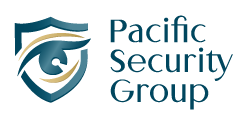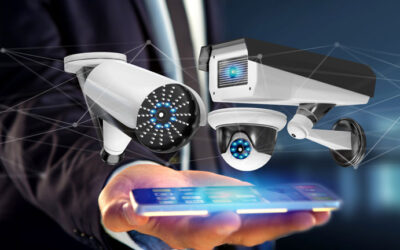Introduction to Security Solutions for Facilities Managers
Security solutions have become a cornerstone for facilities managers, a role that demands an intricate blend of coordination, foresight, and operational expertise. As the custodian of a building’s day-to-day operations, facilities managers are increasingly recognising the imperativeness of robust security measures. This pivotal introduction delves into the essential aspects of security from the perspective of those overseeing facilities management.
Importance of Security in Facility Management
Security within facility management is not just about preventing theft or vandalism. It is intrinsic to maintaining the safety and well-being of both the occupants and the physical assets of a facility. Comprehensive security solutions serve as deterrents to malicious activities and ensure quick responses to unforeseen incidents.
Moreover, in compliance with legal and regulatory demands, facilities managers must ensure that security systems are up-to-date, effective, and adaptable to the constantly evolving threat landscape. The integration of robust security measures underpins the confidence of occupants and stakeholders, bolstering trust in the facilities manager’s capability to maintain a safe environment. Security isn’t an adjunct to facility management; it’s its very foundation.
Overview of Turn-Key Security Solutions for Security Managers
For facilities managers, adopting turn-key security services offers a pragmatic and seamless approach to managing security solutions. These comprehensive packages handle everything from initial consultation and system design to installation, ongoing maintenance, and real-time monitoring. Turn-key services are designed to be hassle-free, allowing facilities managers to focus on other critical aspects of their role.
By partnering with experts who specialise in turn-key solutions, managers are afforded a peace of mind that their security system is both expertly managed and tailored to their specific needs. This bespoke approach ensures the integration of cutting-edge technology and strategic oversight, providing an all-encompassing security net that considers every potential vulnerability and need of the facility. Such services epitomise efficiency, eliminating the fragmented and often resource-intensive approach of managing multiple vendors or system components separately.
Key Components of Security Solutions
Understanding the foundational elements that make up comprehensive solutions is paramount. While the concept of security may evoke images of barriers or safety measures, in reality, it’s a sophisticated orchestration of various components working in tandem.
Access Control Systems
Access control systems represent a pivotal component of any security solution, acting as the gatekeepers to physical spaces. Their purpose is to regulate who can enter various areas, and at specified times, transforming a potentially chaotic environment into one of safety and order.
Types of Access Control Systems
Access control systems can be broadly categorised into three types: discretionary, mandatory, and role based. Discretionary Access Control (DAC) allows the owner to dictate access permissions, often employed in situations demanding flexibility. Mandatory Access Control (MAC), conversely, offers a high level of security by imposing restrictions governed by policies, not individual choice. Lastly, Role-Based Access Control (RBAC) assigns access based on roles within an organisation, balancing security with operational efficiency.
Benefits of Implementing Access Control
The implementation of access control systems provides several tangible benefits. Firstly, they enhance security by restricting unauthorised entry, which is particularly crucial in sensitive areas. They also offer insightful data on entry and exit, enabling organisations to track patterns and respond to anomalies quickly. Furthermore, access control systems can reduce costs associated with traditional security measures, such as employing numerous physical security personnel.
Surveillance and Monitoring Systems
Surveillance systems are the eyes and ears of security solutions for security managers, offering both deterrence and critical evidence in case of security breaches.
Advanced CCTV Technologies
In recent years, CCTV technology has evolved dramatically. Today, advanced features such as high-definition imagery, night vision, and thermal imaging have revolutionised surveillance systems. Some systems also integrate AI technologies, allowing them to identify suspicious behaviour automatically and alert security personnel in real-time, enhancing response times and efficiency.
Real-time Monitoring Solutions
Real-time monitoring solutions facilitate immediate incident response, a crucial factor in minimising damage during a security breach. Coupled with cloud technology, these systems allow security personnel to access live feeds from anywhere in the world, promoting constant vigilance. Additionally, integration with mobile devices further extends the reach and flexibility of surveillance operations.
Intrusion Detection Systems
Intrusion detection systems are the silent sentinels of a security solution, operating discreetly until a threat arises. Their role is to identify and alert security professionals to any unauthorised entry or suspicious activity, providing a critical layer of protection.
Types of Intrusion Detection
Intrusion detection systems can be classified into two main types: perimeter and volumetric. Perimeter systems are designed to detect breaches at the entry points of a site, such as fences or walls. In contrast, volumetric systems monitor spaces within these perimeters, detecting movements that are out of the ordinary. Each type plays a vital role in safeguarding assets, offering a tailored level of security depending on the specific needs of a site.
Integration with Other Security Systems
The effectiveness of an intrusion detection system is significantly enhanced when it is integrated with other security systems, such as access control or surveillance systems. This integration allows for a more robust security network where systems communicate fluidly, triggering appropriate responses quickly and efficiently, thereby fortifying the protective measures.
Fire and Safety Systems
Fire and safety systems are indispensable in any comprehensive security solution. Their purpose extends beyond the prevention of break-ins, addressing life-threatening situations like fires. Fire safety cannot be overstated; it is a fundamental aspect of protecting both human life and property. A fire can spread rapidly, causing catastrophic damage within minutes. Thus, having an effective fire safety system in place is not merely a regulatory requirement but a necessary precaution that can save lives and minimise damage. your 240v system.
Comprehensive Fire Safety Solutions
Comprehensive fire safety solutions incorporate several elements, from alarm systems that alert occupants at the first sign of smoke or fire, to sprinkler systems that help contain flames. Advanced systems also include smoke detectors, heat sensors, and fire extinguishing mechanisms that work in concert to mitigate fire risks swiftly and effectively. These solutions are designed to be both preventative and responsive, offering a holistic approach to fire safety.
Today’s modern alarm and access control systems can sometimes be integrated with your existing Fire Panel to allow a signal to be sent to the control room for a smoke detector event. You can also opt to install 12v smoke detectors directly to your alarm system as back up support to
Nightly Patrol Services
To further support the electronic security of your site, a great addition is the support of a physical patrol officer attending site 3x per night for a perimeter check and/or to support staff who might be working late at night and their safety. Having a seen presence of security throughout your complex decreases the activity of unwanted persons who may be targeting your buildings based on insider knowledge. Patrol Officers can lock up sites after cleaners have left and can also complete simple spotlight checks. Amongst this service they not only look for signs of security concerns but they can also check on utilities, clear out any persons from time restricted areas (such as pools/BBQ areas) and bring in any later postal deliveries into foyers for safe keeping.
Benefits of Turn-Key Security Services
Offering unparalleled comprehensiveness, turn-key security services provide an all-encompassing solution to protect assets efficiently and effectively. Let’s delve into the benefits of such services, which serve as a cornerstone for maintaining safety and peace of mind.
Simplification of Security Operations
When it comes to security, simplicity often dictates effectiveness. Turn-key security services offer a streamlined approach by integrating multiple components into one cohesive system. This means manageability is enhanced, as stakeholders deal with a single provider rather than juggling multiple vendors or contractors. Every aspect, from installation to monitoring and maintenance, is bundled into one seamless package, eliminating the unnecessary complexity typically associated with security management. For businesses and individuals alike, this translates to reduced administrative efforts and the freedom to focus on other critical operations, knowing that the security framework is robust and thoroughly handled.
Cost-Effectiveness and Efficiency
For many, cost is a pivotal factor when considering security solutions. Turn-key security services shine in this respect by offering bundled solutions which often result in notable savings. Instead of incurring disparate costs for various elements such as equipment, installation, and ongoing support, you benefit from a comprehensive package. This means a predictable pricing structure, circumventing the erratic charges that can arise when dealing with multiple security providers. Furthermore, the efficiency of having a holistic service often leads to quicker resolution times and reduced downtimes, amplifying the overall value proposition. Enhanced efficiency also stems from the proficiency and experience of a dedicated provider who understands the nuances of integrated systems, driving both time and resource efficiency.
Customisation to Specific Needs
Every environment is unique, and so too are its security requirements. Turn-key solutions excel in delivering customised security plans that are tailor-fit to individual needs. Whether it’s a commercial enterprise needing intricate access control systems or a residential setting requiring surveillance tailored to specific vulnerabilities, these services adapt to various demands with precision. The level of personalisation ensures that security measures align perfectly with the particular risks associated with your environment. Customised solutions are also key in future-proofing, allowing for scalable implementations that evolve alongside your security needs. This bespoke approach not only enhances protection but ensures that the investment in security is maximised at all levels.
Choosing the Right Security Solutions Provider
Selecting a security solutions provider requires careful consideration, as it significantly impacts the safety and security of your premises or assets. There are several factors to examine, ensuring you partner with a company that truly understands your specific needs and can offer appropriate solutions.
Evaluating Expertise and Experience
When it comes to security, expertise and experience are paramount. The depth of a provider’s experience not only reflects their historical competence but also indicates their ability to handle various security challenges with proficiency. Look for a provider that has considerable experience in your industry sector because the nuances and potential security threats can vary widely between different fields.
An experienced provider will have a portfolio of successful security implementations, showcasing their ability to adapt and evolve according to different scenarios. They should be able to provide case studies or references from past clients, which can further validate their expertise. Additionally, certifications and awards in the security sector can be indicators of credibility and excellence.
Assess other customer reviews of the company you are researching and ensure they have the relevant Security Firm Licenses in place and are insured. All technicians are to be registered with a Security Industry Association with a member number, along with their own personal security license and cablers license to comply.
Importance of Customer Support
The quality of customer support is a critical aspect when choosing a security solutions provider. Even the most advanced security systems can encounter glitches or require adjustments; thus, responsive and available customer support is essential for smooth operation.
A provider that offers 24/7 support is ideal, as security needs do not adhere to a 9-to-5 schedule. Additionally, customer support should include a team that is knowledgeable, courteous, and efficient, ensuring that your concerns are addressed promptly and effectively. Inquire about the provider’s response time and support protocols before committing, as this can be telling of their reliability in moments of need.
Consideration of Technological Advancements
A forward-thinking approach is crucial for any security solutions provider. Assess whether the company stays abreast of the latest technological advancements in security systems, as these innovations can significantly enhance your security solutions.
Technology-driven enhancements, such as smart locks, AI-powered surveillance cameras, and remote monitoring capabilities, are game-changers in the industry. A good provider will not only offer these cutting-edge solutions but also be adept at integrating them with existing systems, ensuring seamless operation without compromising security. Engaging with a provider that invests in research and development assures you of continually improving solutions.
By analysing these factors, you can confidently choose a security solutions provider that matches your unique requirements, ensuring the safety and security of your environment with dependable expertise and cutting-edge technology.
Recent Trends in Commercial Security
As one of the most dynamic sectors, the commercial security industry is witnessing profound shifts due to technological advancements and emerging challenges. These trends not only reflect the evolution of technology but also signify a response to the ever-changing landscape of threats. Allow me to delve into some of the most significant recent trends shaping commercial security.
Integration of AI and Machine Learning
Artificial Intelligence (AI) and Machine Learning (ML) are revolutionising the way we approach security. With AI and ML, security systems are now more intelligent and responsive. They possess the capability to analyse vast amounts of data quickly, identifying potential threats that may have been missed by human oversight. For instance, AI-powered cameras can discern between the usual hustle and bustle of a busy office and identify suspicious behaviour or unauthorised access, immediately alerting security personnel. Search terms can be based on colour of clothing, someone carrying a bag or other key identifiers to allow the end user to search quickly and effectively for pre and post recording events. Alerts can be set up for problematic persons, vehicles and/or objects. Sirens and voice notifications can be set up to deter offenders and video footage is recorded of each event.
Moreover, machine learning algorithms are continuously learning and evolving. They enhance the accuracy of threat detection over time, reducing the number of false positives and improving the system’s overall efficiency. The integration of AI and ML into commercial security not only empowers organisations to be proactive but also significantly reduces the reliance on human intervention, thus cutting down operational costs.
Rise of Cloud-Based Security Solutions
Cloud-based security solutions are gaining traction as companies seek flexible and scalable options to manage their security needs. These solutions offer an array of benefits, including reduced hardware costs, easier maintenance, and the flexibility to access security controls remotely. A cloud-based security system can be updated in real-time, ensuring that the latest security features and patches are always in place. This service however does come at a cost based on the amount of data being saves and the duration of the recordings to be saved (i.e. up to 90 days)
Increased Focus on Cybersecurity
As our reliance on digital systems and interconnected networks grows, so does the emphasis on cybersecurity within commercial security strategies. Although traditionally seen as separate, the lines between physical security and cybersecurity have blurred. Breaches in digital security can lead to dire consequences, such as unauthorised access to confidential information or operational disruptions.
Organisations are investing in comprehensive cybersecurity measures to safeguard sensitive data against cyber-threats, such as hacking or ransomware attacks. This escalated focus also extends to employee training programs, aimed at fostering a culture of awareness and vigilance. It’s imperative for employees to understand potential risks and the best practices for maintaining security in both digital and physical realms.
Security strategies are now multi-layered, incorporating perimeter measures, network security, and endpoint protection to create a fortified defence. Commercial entities are not only adopting cutting-edge technologies but also cooperating with cybersecurity experts to conduct regular audits and stress tests. By doing so, they ensure their security posture is resilient against evolving threats.
These trends underscore the critical importance of staying ahead of the curve in commercial security, adopting innovations that enhance safety and reliability in an ever-shifting environment.
Key Takeaways
When it comes to implementing effective security solutions, there are several crucial elements that we must always consider. First and foremost, understanding the specific needs of your environment is key. Not all spaces require the same level of security; tailor your approach based on risk assessments and the environment in question. Access control remains one of the vital components of a robust security strategy. Whether it’s through physical means like gates and locks or technological solutions such as card readers and biometric systems, controlling who enters and leaves a premise cannot be underestimated.
Furthermore, an efficient communication system should be in place to ensure that all security measures are well-coordinated. This might include intercoms, two-way radios, or even mobile alerts. Regular training and drills for security personnel are also essential. They must be well-versed in emergency protocols and adept at using the security technologies installed. Monitoring and maintenance of security systems, such as CCTV and alarm systems, must not be overlooked either. Regular checks ensure these tools function correctly and continue to provide comprehensive coverage. Finally, collaboration with local law enforcement and community groups can significantly bolster the efficacy of security measures by ensuring timely responses to any incidents.
Final Thoughts on Implementing Security Solutions
Implementing security solutions is a dynamic process that involves constant evaluation and adaptation. If we are to keep up with evolving threats and technological advancements, we must be proactive rather than reactive. This means staying informed about the latest trends in security and being willing to invest in updated technologies and methods. It’s also crucial to engage all stakeholders in the security process; when everyone is aware of security protocols, the likelihood of oversight or error decreases. Remember, effective security isn’t about creating a fortress; it’s about creating an environment where people feel safe and can operate without fear. Through diligent planning, consistent training, and community cooperation, we can create security solutions that not only protect but also instil confidence and peace of mind.
FAQs
- What are turn-key security solutions for facilities managers?
- Turn-key security solutions are comprehensive, all-in-one packages that handle every aspect of a facility’s security system, from initial design and installation to ongoing maintenance and real-time monitoring. They simplify security management by providing facilities managers with a single provider for all security needs.
- Why are security solutions important in facility management?
- Security solutions are crucial for protecting both people and assets within a facility. They help prevent theft, vandalism, and other incidents while ensuring that the facility complies with safety regulations. A robust security system fosters trust and confidence among occupants and stakeholders, showcasing the facility manager’s dedication to safety.
- What types of access control systems are available?
There are three primary types of access control systems:
- Discretionary Access Control (DAC): Where owners set access permissions.
- Mandatory Access Control (MAC): Uses strict policies to regulate access.
- Role-Based Access Control (RBAC): Grants access based on a person’s role within the organization, providing both security and flexibility.
- How does real-time monitoring enhance facility security?
- Real-time monitoring solutions allow security teams to access live video feeds, track potential incidents as they happen, and respond immediately. Cloud technology and mobile integrations enable security personnel to monitor and manage security remotely, ensuring continuous surveillance and rapid incident response.
- What is the role of surveillance systems in security management?
- Surveillance systems serve as both a deterrent and a method for capturing critical evidence in the event of a security breach. Advanced CCTV systems now include high-definition imaging, night vision, and even AI capabilities, allowing security teams to detect suspicious activities automatically and respond promptly.
- How do intrusion detection systems work?
- Intrusion detection systems use sensors and other technologies to identify unauthorized access or unusual movements within or around a facility. They can be perimeter-based, focusing on external barriers like fences, or volumetric, monitoring indoor areas. These systems send immediate alerts to security personnel, helping to prevent security breaches.
- What are the benefits of using turn-key security services over multiple vendors?
- Turn-key security services consolidate all security aspects under one provider, making management more efficient and cost-effective. They simplify installation, maintenance, and monitoring, allowing facilities managers to avoid the complexities and expenses associated with coordinating multiple vendors.
- Can fire safety systems integrate with security systems?
- Yes, modern fire safety systems can often be integrated with alarm and access control systems. This integration enables coordinated responses, such as notifying security personnel if a smoke detector is triggered, ensuring a faster response to potential fire hazards.
- What should facilities managers look for in a security solutions provider?
- Facilities managers should consider a provider’s expertise, experience, and reputation. Key factors include industry-specific experience, the ability to offer customized security solutions, strong customer support, and a commitment to staying updated with the latest technology in security systems.
- What trends are currently shaping commercial security solutions?
- Key trends include the integration of AI and machine learning in surveillance systems, the rise of cloud-based security solutions, and the merging of physical security with cybersecurity measures. These innovations allow for more adaptive, data-driven, and scalable security solutions that align with evolving facility needs.
- How can facilities managers future-proof their security solutions?
- Future-proofing involves selecting customizable and scalable security solutions that can adapt to new threats and technological advancements. Regularly updating systems, investing in ongoing training, and staying informed about industry trends are essential steps to ensuring long-term security efficacy.
The Future of Security Solutions for Facilities Managers
As I reflect on the rapid evolution of security solutions, I can attest to the significant transformation facilities managers have witnessed over the years. The future of security solutions for facilities managers is poised to grow more sophisticated, integrating technology with practical applications to meet emerging threats and challenges. There’s a clear trajectory towards more adaptive and intelligent systems. Sophisticated video surveillance, biometric access controls, and AI-driven analytics are no longer just concepts but essential components of modern security infrastructures.
Moreover, the increased connectivity through the Internet of Things (IoT) will enable facilities managers to oversee operations with unparalleled precision and real-time data input. This connectivity will allow for predictive maintenance, understanding potential vulnerabilities before they manifest and addressing them proactively.
As technology continues to advance, there’s a burgeoning opportunity for security solutions to become more personalised and user-friendly. Facilities managers will be able to tailor their security strategies to meet the unique needs of their respective environments, blending seamlessly with their operational objectives. Therefore, the focus will shift towards creating secure yet convenient solutions that enhance overall efficiency without compromising safety.
In my experience, maintaining a strong foothold in the security landscape requires continuous learning and adaptation. For facilities managers, the journey doesn’t stop with the implementation of advanced security systems. Instead, it extends into an ongoing commitment to staying informed about the latest trends and innovations.
Professional development is crucial in this field. Attending workshops, participating in industry seminars, and engaging with peers can provide invaluable insights. By remaining curious and open to new ideas, facilities managers can not only respond to current security challenges but also anticipate future needs.
It’s about fostering a security culture within their teams—a culture that prioritises risk assessment and proactive strategies. Encouraging personnel to be vigilant and informed is just as important as the systems in place. After all, technology serves as a tool, but human intuition and decision-making remain indispensable components of an effective security strategy.
By embracing both technological advancements and human expertise, facilities managers can ensure that their security measures remain robust and adaptable, safeguarding their spaces against an ever-evolving tapestry of risks.




